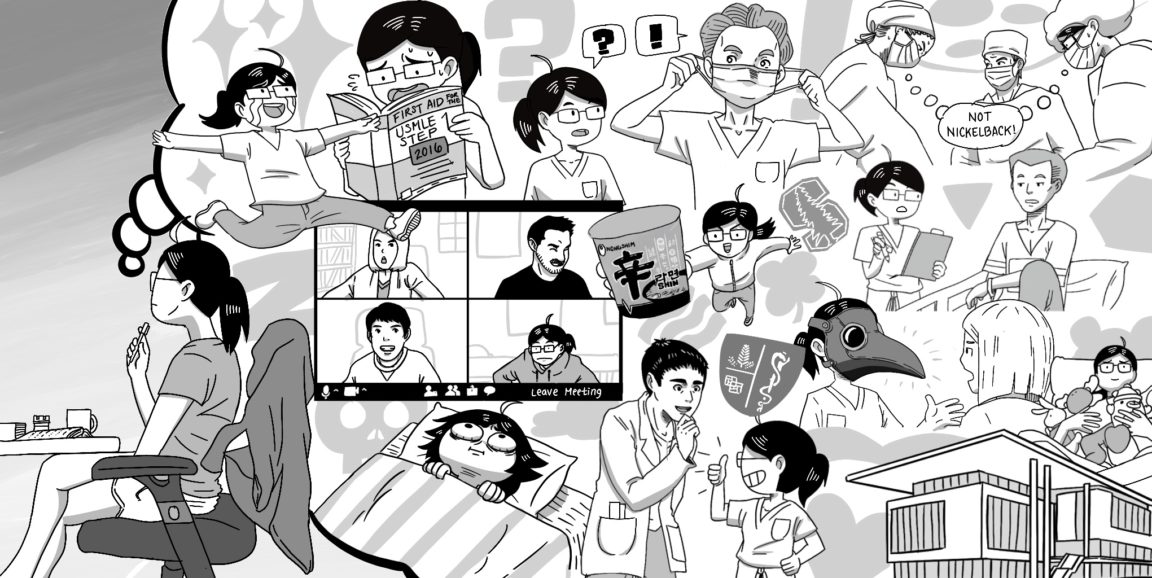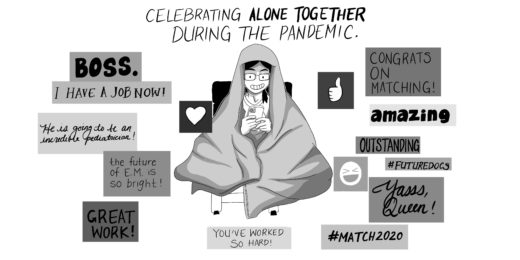I'm searching for a sense of an ending to my time in medical school.
I understand that a canceled Match Day event and graduation ceremony pales in comparison to other upheavals caused by the COVID-19 pandemic. Still, I had hoped that a proper conclusion would recontextualize and validate the experiences that have changed me, for better and for worse: delivering a healthy baby in all of her bloody, messy glory; standing by as a patient who asked to be disconnected from the ventilator took his last agonal breaths; working frantically -- and futilely -- with my team to stabilize a patient in the trauma bay as she bled onto the floor.
For many medical students, end-of-school festivities follow a similar pattern: a big trip, time with friends and the graduation ceremony. I particularly looked forward to getting together with my classmates and reminiscing about how much we had learned and grown. Then, during commencement, we would don the full regalia of graduation -- topped off with a floppy doctoral tam -- and both celebrate our accomplishments and recognize our loved ones.
All of this, I imagined, would allow me to close out this chapter of my life on a positive note.
But with our carefully-envisioned endings taken away, we've each had to scramble to make new plans. Though a big international trip and an in-person graduation ceremony may no longer be feasible, at least reaching out to friends is easy -- especially since most of us are stuck at home.
Many of my classmates are hunting for apartments online and waiting to set off for new cities and hospitals throughout the country. Meanwhile, I've been reaching out to friends via email and FaceTime. I've been catching up on our past few weeks apart, reminiscing and wishing them luck in their next adventure. It isn't the last hurrah together that we'd had in mind, but I want to let them know that they are in my thoughts and I hope to be in theirs.
How we organize our own biographies -- the beginning, the middle and the end -- is ultimately a fiction in and of itself, according to the late literary scholar Frank Kermode.
In fiction, my favorite type of ending is one that ties all of the plot points into a neat bow, a kind finale that is as comforting as it is unrealistic. My ideal ending would provide a sense of closure, a signal that everything I had gone through in medical school was worthwhile, and that I have what it takes to be a competent intern and physician.
But the truth of the matter is that regardless of what ending I construct for myself, reality will remain unchanged. I'll still start my intern year in June; and my skills, knowledge and competency won't be altered by the disruption caused by COVID-19.
I will receive my medical degree. And I will proceed to the next chapter of my training, into a scary, exciting and unknown future.
Stanford Medicine Unplugged is a forum for students to chronicle their experiences in medical school. The student-penned entries appear on Scope once a week during the academic year; the entire blog series can be found in the Stanford Medicine Unplugged category.
Yoo Jung Kim is a fourth-year Stanford medical student and the co-author of "What Every Science Student Should Know." Her pieces on medicine and society have appeared in The Washington Post, the Seattle Times, The Mercury News, The Korea Times, and Nature. Her writings and cartoons can be found on Twitter at @yoojkim.
Image by Yoo Jung Kim






